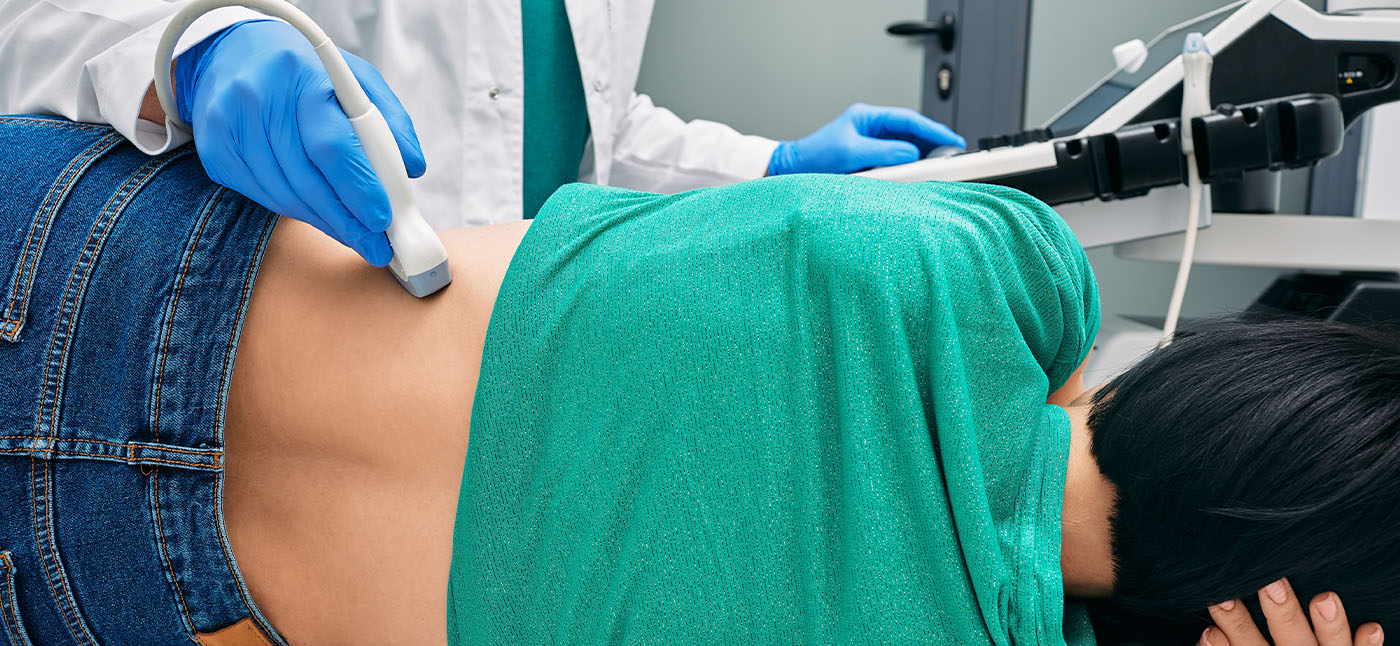Understanding Common Urology Conditions: A Comprehensive Guide
Nov 17, 2023
INSIGHTS,HEALTHIn this article, we will delve into a range of often encountered ailments that affect the urinary system, providing you with the knowledge you need to better understand these conditions and their potential treatment options.

Welcome to our comprehensive guide on understanding common urology conditions. In this article, we will delve into a range of often encountered ailments that affect the urinary system, providing you with the knowledge you need to better understand these conditions and their potential treatment options.
Whether you are experiencing urinary incontinence, kidney stones, urinary tract infections, or any other urological issue, it’s important to have accurate information at your disposal. By addressing topics such as symptoms, causes, diagnosis, and potential treatment options, our aim is to empower you to make informed decisions about your health.
Our expert team of urologists has carefully curated this guide to ensure it is both reliable and easy to understand. We have taken the time to break down complex medical jargon into clear, concise language, ensuring that everyone, regardless of their medical background, can benefit from this information.
So whether you're seeking answers to your own urological concerns or want to learn more about common urology conditions, sit back, relax, and let us guide you through this comprehensive exploration of the urinary system.
Common urology conditions in men
When it comes to common urology conditions, men face their fair share of challenges. Prostate issues, including benign prostatic hyperplasia (BPH) and prostate cancer, are among the most prevalent. BPH, a non-cancerous enlargement of the prostate gland, can cause urinary symptoms such as frequent urination and weak urine flow. Prostate cancer, on the other hand, is a serious condition that requires prompt diagnosis and treatment.
Another condition that affects men is erectile dysfunction (ED). While ED may have psychological or lifestyle factors contributing to it, it can also be an indication of an underlying medical condition such as diabetes or cardiovascular disease. Seeking medical attention for ED is crucial to identify any potential underlying causes.
Lastly, testicular conditions such as testicular torsion, epididymitis, and testicular cancer also require attention. Testicular torsion is a painful condition where the spermatic cord twists, cutting off blood supply to the testicle. Epididymitis, an inflammation of the epididymis, can cause pain and swelling. Testicular cancer, although relatively rare, can present as a painless lump in the testicles and should be evaluated by a healthcare professional.
Common urology conditions in women
Women also experience a range of urology conditions, some of which are unique to their anatomy. Urinary incontinence, for example, is a common condition affecting many women. Stress incontinence, which occurs when physical activities such as coughing or sneezing put pressure on the bladder, can cause leakage of urine. Another type of incontinence, called urge incontinence, involves a sudden and strong urge to urinate, often leading to an involuntary loss of urine.
Another condition that affects women is urinary tract infections (UTIs). UTIs occur when bacteria enter the urethra and multiply in the urinary tract. Symptoms of UTIs include a frequent urge to urinate, a burning sensation during urination, and cloudy or strong-smelling urine. Prompt treatment with antibiotics is essential to prevent the infection from spreading to the kidneys.
Additionally, pelvic organ prolapse is a condition where the pelvic organs, such as the bladder, uterus, or rectum, descend into the vaginal canal. This can cause discomfort and a feeling of pressure in the pelvic area. Treatment options for pelvic organ prolapse may include pelvic floor exercises, the use of pessaries, or surgery, depending on the severity of the condition.
Symptoms and causes of urology conditions
Understanding the symptoms and causes of urology conditions is key to early detection and effective treatment. While the specific symptoms and causes vary depending on the condition, there are some commonalities to be aware of.
For example, pain or discomfort during urination is a symptom that can occur in various urology conditions such as UTIs, kidney stones, or interstitial cystitis. Frequent urination, blood in the urine, and urinary urgency are also common symptoms that may indicate an underlying urology condition.
The causes of urology conditions can be multifaceted. Infections, such as bacterial or fungal infections, can lead to various urology conditions, including UTIs and epididymitis. Lifestyle factors, such as poor diet or inadequate hydration, can contribute to the formation of kidney stones. Hormonal imbalances, aging, and certain medications can also play a role in the development of urological issues.
Diagnosis and treatment options for urology conditions
When it comes to diagnosing urology conditions, healthcare professionals employ a variety of methods. For example, in the case of UTIs, a simple urine test can confirm the presence of bacteria. Imaging tests, such as ultrasounds or CT scans, can help diagnose kidney stones or identify abnormalities within the urinary tract.
Once a diagnosis is made, appropriate treatment options can be explored. In the case of UTIs, antibiotics are typically prescribed to eliminate the infection. Kidney stones may require medical intervention, such as extracorporeal shock wave lithotripsy (ESWL) or surgical removal, depending on the size and location of the stones.
For conditions such as BPH or prostate cancer, treatment options may include medications, minimally invasive procedures, or surgery. In the case of erectile dysfunction, treatment may involve medication, lifestyle changes, or counseling. Treatment plans are tailored to each individual's specific condition and may vary based on factors such as age, overall health, and personal preferences.
Prevention and management of urology conditions
Prevention and management strategies play a crucial role in maintaining urological health. For example, staying hydrated and maintaining a healthy diet can help prevent the formation of kidney stones. Good hygiene practices, such as wiping from front to back after using the toilet, can reduce the risk of urinary tract infections.
Regular physical activity and pelvic floor exercises can help strengthen the muscles that support the urinary system, reducing the likelihood of stress incontinence. Avoiding tobacco use and practicing safe sex can also contribute to urological health.
In some cases, urology conditions may require ongoing management. This may involve regular check-ups with a healthcare professional, lifestyle modifications, or the use of medications to control symptoms. It's important to work closely with your healthcare team to develop a personalized management plan that meets your specific needs.
Lifestyle changes for better urology health
In addition to medical treatments and management strategies, certain lifestyle changes can have a positive impact on urological health. For example, maintaining a healthy weight can help reduce the risk of developing urological conditions such as BPH or urinary incontinence.
Quitting smoking can also improve urological health. Smoking has been linked to an increased risk of bladder cancer and can exacerbate symptoms of other urological conditions. By quitting smoking, individuals can improve their overall health and reduce their risk of developing urological issues.
Additionally, managing stress levels through techniques such as exercise, meditation, or counseling can help alleviate symptoms of urology conditions like interstitial cystitis or urinary incontinence. Stress reduction techniques can also have a positive impact on overall well-being.
Support and resources for individuals with urology conditions
Living with a urology condition can be challenging, but there are resources and support available to help individuals navigate their journey. Support groups, both in-person and online, can provide a sense of community and understanding. Connecting with others who are going through similar experiences can offer valuable emotional support and practical advice.
In addition to support groups, there are numerous educational resources available. Books, websites, and reputable medical organizations provide information on specific urological conditions, treatment options, and lifestyle recommendations. It's important to seek out reliable sources and consult with healthcare professionals to ensure accurate information.
Urology advancements and future trends
The field of urology is constantly evolving, with advancements and innovations improving treatment options and patient outcomes. Robotic-assisted surgery, for example, has revolutionized certain urological procedures, allowing for greater precision and faster recovery times.
Additionally, research is ongoing in areas such as regenerative medicine and gene therapy, which hold promise for the future of urological treatments. By understanding and supporting these advancements, individuals with urology conditions can stay informed and potentially benefit from emerging therapies.
Conclusion
In conclusion, understanding common urology conditions is essential for maintaining optimal urinary health. By familiarizing yourself with the symptoms, causes, diagnosis, and treatment options of these conditions, you can make informed decisions about your health and seek timely medical attention when needed.
Remember, prevention and management strategies, as well as lifestyle changes, can greatly impact urological health. By adopting healthy habits and seeking support when necessary, you can improve your overall well-being and live a fulfilling life, even with a urology condition.
So, whether you're facing a specific urological concern or simply want to broaden your knowledge, we hope this comprehensive guide has provided you with valuable insights into the world of urology. Take control of your urinary health, and remember, you're not alone on this journey.
Get a Free Quote
Let Us Help You Find the Best Doctors for Your Needs
Fill out the form, and an assistant will contact you shortly to discuss your needs and guide you to top specialists.

Table of Contents
read this next:
Oct 04, 2023
INSIGHTS,HEALTHThe Advantages Of Choosing Smart Eye Surgery
The advancement of technology has brought about significant changes in the field of medicine, particularly in ophthalmology.
Looking for the Right Treatment?
Let us find the best doctors & clinics you need. Get your free quote today!
Get a Free Quote
